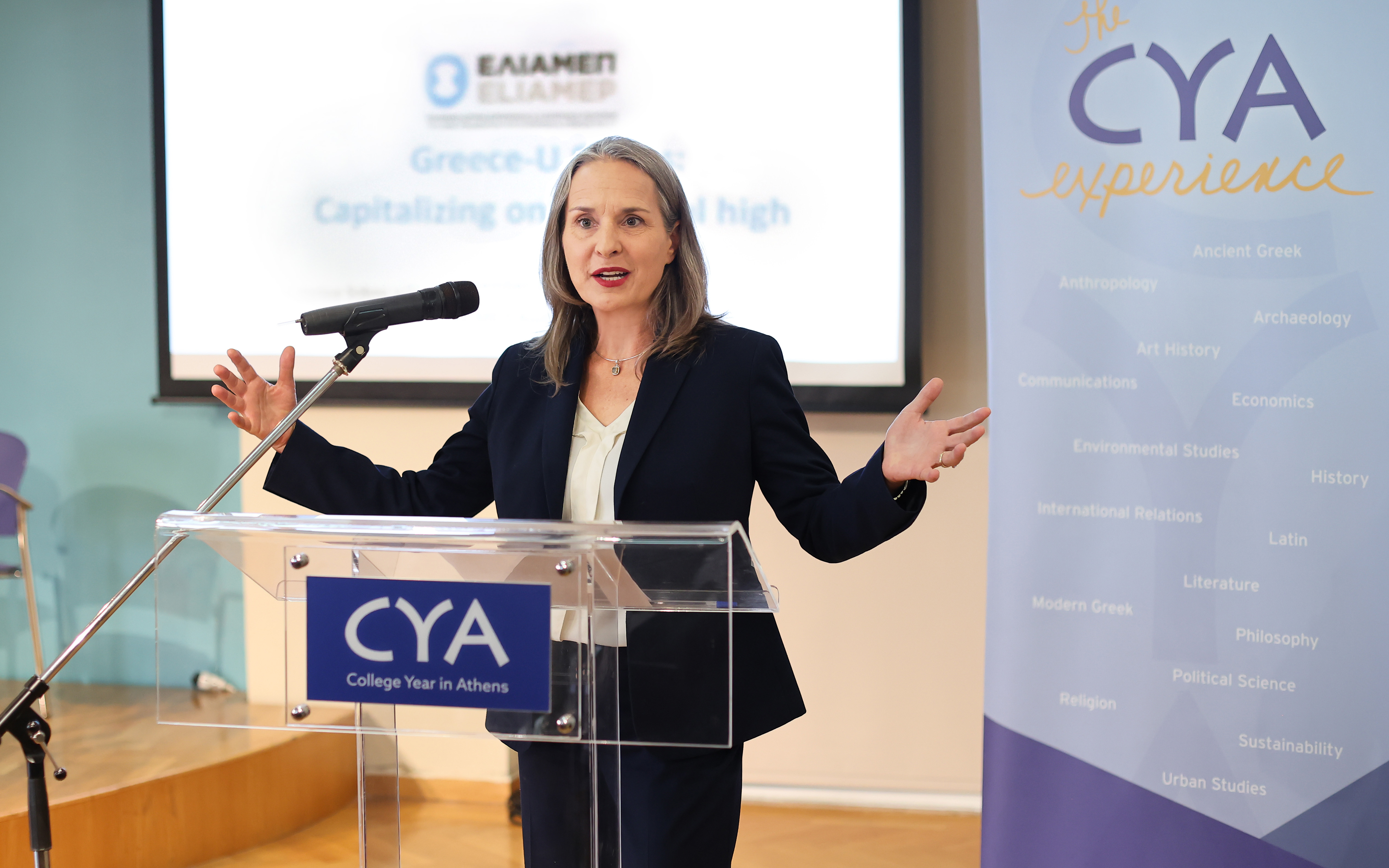Seizing opportunities amid heightened US ties

Katerina Sokou, a Theodore Couloumbis Research Fellow specializing in Greek-American relations at the Hellenic Foundation for European and Foreign Policy (ELIAMEP), has unveiled her policy paper concerning the prospective trajectory of Greece’s bilateral relationship with the United States. Her paper, titled “Greece-US reactions: Capitalizing on a generational high,” which was presented during an event organized by ELIAMEP in central Athens on Tuesday evening, also delves into Greece’s ability to harness this relationship to advance its national security objectives and obligations.
Shared values
“The deepening cooperation between Greece and the United States is based on shared values and, importantly, aligned interests,” Sokou says, adding that having shed the remaining legacies of their Cold War dependency, relations between the two NATO allies now point to a new paradigm: “that of a voluntary, and mutually beneficial, strategic partnership that enjoys wide political support in both countries.”
Sokou, who is a nonresident senior fellow at the Atlantic Council and a Washington, DC correspondent for Kathimerini newspaper, claims that after emerging from a 10-year financial crisis, Greece has reasserted its regional prominence. Against the backdrop of Russia’s invasion of Ukraine, Greece’s geopolitical significance has surged, as it actively backs NATO’s Eastern Flank, plays a vital role in enhancing energy security across Southeast Europe, and fosters alliances in the Eastern Mediterranean and other regions.
“Having emerged as both a reliable ally in its region and an indispensable strategic partner for the United States, Greece is claiming a more ambitious role in the new global security architecture,” she says.
Furthermore, Sokou stresses that Athens and Washington share similar assessments of global challenges and their impact on Greece’s immediate neighborhood during this period of intense great power rivalry.
“As the US administration seeks to work with its partners to address the revisionism of authoritarian governments, Greece has the opportunity to safeguard its national interest in a rules-based international system that neutralizes Turkey’s revisionism while standing with Ukraine,” she says.
“Building on joint institutions and policy tools will be key to maintaining the momentum and deepening cooperation between Greece and the United States in strategic areas such as regional cooperation initiatives, defense, and security,” Sokou says, adding that leveraging their strong people-to-people ties will also will also facilitate the growth of commercial relationships, technology dissemination, energy collaboration, and educational interchange, among various other key objectives.

Potential risk
The Theodore Couloumbis Research Fellow warns that the two allies must work to preserve their strategic alliance against both political disagreements and external challenges.
“The current political consensus on the value of the bilateral partnership could still be undermined by American isolationism and Greek nationalism,” she says.
The paper places particular emphasis on the trajectory of Turkey’s future seeing it as pivotal to Greece’s national security deliberations.
“Transactional or not, any US relationship with Turkey that ignores Turkish revisionism could weigh on Greece-US relations,” Sokou says.
“However, as the NATO Summit in Vilnius showed, Turkey’s re-engagement with the West passes through its relations with Greece, giving Athens the opportunity to include its terms and sensitivities in the process.”

The impact of an F-16 sale to Turkey
The policy paper also examines Greek security concerns over what an American deal with Turkey on the sale of F-16 warplanes could mean for the balance of power in the Aegean.
The policy paper notes that the Biden administration reportedly tried to persuade Congress to allow the sale in exchange for Turkey’s green light for Sweden’s NATO membership. President Biden linked the two – and Greece – himself during a conversation with CNN journalist Fareed Zakaria before the Vilnius Summit about “trying to put together a consortium, where we’re strengthening NATO in terms of the military capacity of both Greece and Turkey, and allow Sweden to come in,” the paper says.
“To avoid falling behind in the balance of power with Turkey, Greece will need to maintain a qualitative advantage in its defense capabilities while avoiding an arms race that, rather than acting as a deterrent, may escalate tensions and undermine peace and prosperity,” it says.
“Beyond the sale of F-35 fighter jets, which is already in the works, this could include artificial intelligence technology or unmanned aerial vehicles,” it adds.



